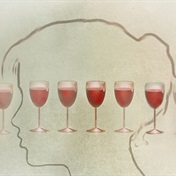Research has shown that up to a third of South African drivers had driven drunk in the six months preceding a 2008 survey. Read more about this alarming admission.
This is despite the very clear message about the consequences of drinking and driving: 40% of drivers who die on the road have alcohol levels in excess of .08gms/100ml, according to Dr Charles Parry of the Alcohol and Drug Abuse Research Group of the Medical Research Council (MRC).
How do you know what your limit is likely to be? Health24 has developed a tool that offers a fair estimate regarding your blood-alcohol levels.
Other disturbing statistics provided by the MRC include:
- South Africans consume over 6 billion litres of alcohol per year, which makes us one of the highest alcohol consuming nations in the world
- 50,5% percent of people who died non-natural deaths in the Cape metropole in 1995, had blood alcohol levels above .1gm/100ml
- Alcohol misuse costs South Africa approximately R9,5 billion per year – 2% of the Gross National Product
- More than 60% of hospital trauma cases are linked to alcoholic consumption
- 26% percent of women in the Western Cape consume enough alcohol to put their babies at risk for foetal alcohol syndrome.
So when it gets to drinking and driving, statistics speak for themselves. But how exactly does alcohol affect the brain, and why does this make driving dangerous?
Alcohol and your brain
Despite the fact that a drink or two cheers up most people, alcohol is actually a nervous system depressant – the more you drink, the more difficult it is for your brain to function properly.
The brain consists of three major parts: the cerebrum, the cerebellum and the medulla.
The cerebrum controls advanced functions, such as reasoning, vision, recognition and emotion. Alcohol lowers inhibitions and affects judgment, movement, vision and speech.The cerebellum largely controls movement, and deals with reflexes, balance and co-ordination. The medulla controls basic survival functions such as heartbeat and breathing, both of which processes can be stopped entirely by severe alcohol consumption.
Nerves carry messages to different parts of your body with instructions to do things. The brain and the nerves are made up of neurons that actually carry the messages from your brain and back. The neurons do not actually touch one another – there is a space between them, which are called synapses. Electrical signals carry messages the length of the neuron and neurotransmitters carry the messages across the synapse to the next neuron. It is in the synapses that alcohol affects the working of your brain, as a couple of drinks will affect the efficiency with which neurotransmitters carry messages between the neurons.
This is why someone who has had too much to drink cannot walk in a straight line, speaks in a slurred fashion, drives in a weaving pattern across the road and is slow to brake in an emergency situation.
How alcohol affects driving skills
When we drive, we use many basic skills simultaneously – perception, judgment, quick physical reaction, decision-making. When we have had too much alcohol, we become unable to co-ordinate all these actions.
The following things are typical of a drunk driver:
- Limited ability to judge distances between both stationary and moving objects
- Difficulty negotiating a car in or out of a parking spot
- Increased difficulty to adjust to sudden darkness
- Difficulty in maintaining a constant speed
- Peripheral vision is impaired and little attention is given to road signs, other traffic and pedestrians
- Increased time before the driver reacts to an emergency situation by stepping on the brake or correcting the steering
The reduction of the legal alcohol limit from .08gms/100ml to .05gms/100ml was largely aimed at reducing the high road death toll, partially caused by drunken driving. For those operating buses and taxis, the limit is .02gms/100ml. In South Africa there are now also increased fines and punishment for drunken driving. For driving under the influence of alcohol alone, a driver can now expect a maximum sentence of six years in prison or a R120 000 fine, or both.
But how much hope is there to curtail drunken driving unless the greater problem of alcohol abuse in South Africa is addressed? – (Susan Erasmus, Health24, updated April 2012)
See the video that shows how drinking affects our participants' motor co-ordination: From sober to shtupid.




 Publications
Publications
 Partners
Partners










